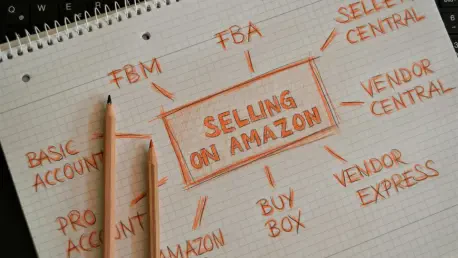In a digital age dominated by convenience and rapid delivery, the landscape of American retail is undergoing a significant transformation. Traditional brick-and-mortar stores face mounting pressure from online giants such as Amazon, which continue to expand their influence and reach. This shift is not just about purchasing goods; it reflects an evolution in consumer expectations and preferences. The concept of shopping has moved beyond tangible retail spaces to encompass the vast, virtual aisles of online marketplaces. Retailers now find themselves at a crossroads where adaptation and innovation are imperative for sustaining relevance in this competitive market. The 2025 Axios Harris Poll 100 Reputation Rankings sheds light on how some retailers have navigated this challenge, providing insights into their strategies and consumer perceptions at a time when digital prowess and customer loyalty are key to survival.
Navigating the Digital Revolution
A critical factor in maintaining competitiveness in this shifting landscape is brand recognition, a crucial element amidst the digital revolution. Brands like Trader Joe’s, which tops the rankings with a score of 82.1, demonstrate a commitment to product quality and customer service, maintaining a strong reputation in both digital and physical spaces. Their trajectory, particularly praised in the poll, illustrates how legacy characteristics like trust and ethics remain pivotal despite digital innovations. Costco follows closely, recognized for its strong organizational culture and customer engagement strategies. These retailers have not only adapted but thrived by reinforcing their core values, emphasizing consistent delivery of product excellence, and fostering customer trust. It is not just about existing online but leveraging digital platforms to strengthen the brand experience, ensuring that customers continue to associate them with reliability and quality.
Retailers such as Home Depot and Lowe’s have shown remarkable progress, marking substantial improvements in their trust and vision scores. This progress represents their significant efforts to align with evolving consumer demands and expectations. Both have effectively leveraged e-commerce platforms, coupled with robust supply chain networks, to redefine how home improvement products are marketed and purchased. By focusing on comprehensive service delivery and user-friendly interfaces online, they have managed to enhance their reputation. This progression highlights that while the shift to digital is undeniable, successful navigation involves integrating technological advancements with top-tier service delivery, ensuring that the physical and digital experiences are seamless and customer-centric.
The Impact of Consumer Expectations
An evolving thread in the retail narrative is the significance of consumer expectations, which play a paramount role in shaping retailer reputations. In recent years, customers have increasingly prioritized ethical considerations and transparency, driving retailers to reevaluate business models for alignment with these values. Best Buy exemplifies this, achieving a notable ascent in the rankings through strategic focus on growth and product innovation. Their approach underscores the increasing importance of sustainable practices and corporate responsibility in retail. By embracing these values, Best Buy not only enhances its public image but also appeals to a more conscientious consumer base invested in ethical consumption.
Underlying these developments is a core reliance on trust and quality, signaling timeless tenets of retail success. Brands achieving top scores in trust and product quality showcase their continued excellence and adaptability. Consumer awareness has heightened, and a commitment to these values has become critical. Shoppers are more informed and discerning, often correlating reputation with transparency and consistent service. The interplay between digital transformation and these foundational retail concepts illustrates a dynamic evolution, suggesting that the future of retail lies not solely in technological enhancements but in the seamless integration of fundamental ethical practices with cutting-edge advancements.
Adapting to the Future of Retail
In today’s fast-paced market, brand recognition is key to staying competitive amidst the digital revolution. Brands like Trader Joe’s, boasting a leading score of 82.1, underline the importance of product quality and customer service, maintaining credibility in both digital and physical realms. Their success story exemplifies how enduring traits like trust and ethics are crucial, even as digital innovations emerge. Costco, close behind, is celebrated for its robust organizational culture and customer interaction methods. These retailers have not just kept up but thrived by underscoring core values such as product excellence and fostering customer trust. They smartly use digital platforms to enhance brand identity, ensuring consumers link them to reliability and quality. Meanwhile, Home Depot and Lowe’s have notably improved their trust and vision scores. Their efforts reflect a keen alignment with changing consumer needs, using e-commerce and strong supply chains to revolutionize the home improvement sector, seamlessly blending digital advancements with exceptional service delivery.









